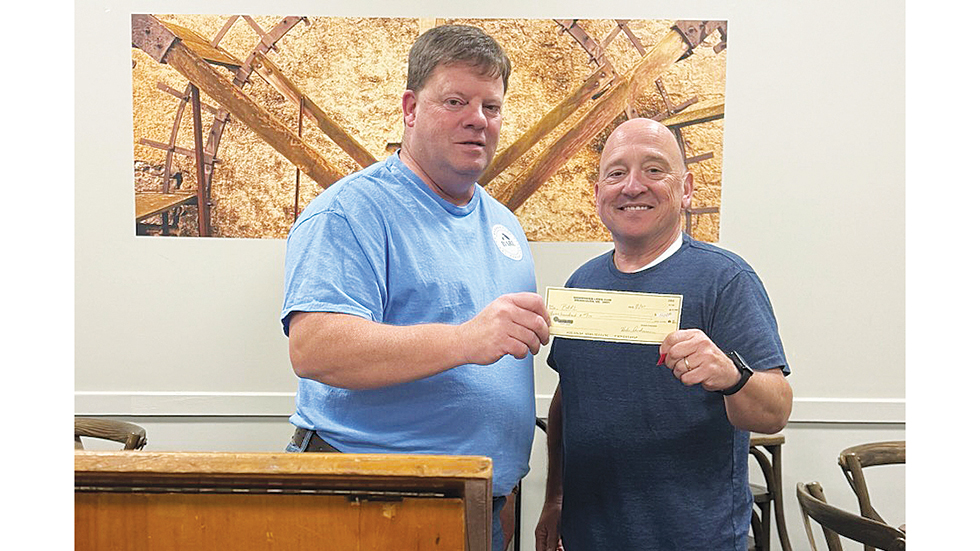Bringing Hope to a rural province of Vietnam
Published 4:56 pm Tuesday, May 26, 2020
In Vietnam’s rural Quang Nam Province, therapy services for children with disabilities were non-existent until two years ago.
That’s when an American occupational therapist arrived on the scene, and Hope Therapy Center was born. Operated by a ministry called Orphan Voice, the center helps children affected by cerebral palsy and other developmental delays.
When my son visited the center last year, I was introduced to Caroline Mrowiec, the OT who moved to Da Nang in 2018. Her assignment was to start a pediatric therapy center in a remote spot 40 minutes away. To lay the groundwork, she and a government official screened clients from a list of over 800 children with medical conditions or disabilities. They went house to house conducting interviews, eventually leaving Mrowiec to begin with a caseload of 10 patients. These days, it’s up to 30 and there’s a waiting list for their free group and individual therapy sessions.
Trending
Mrowiec describes how they helped a 10-year-old girl with arthritis: “We did a lot of resistance training and Pilates, some bar workouts. I would try to make them sort of ballet inspired so they would be fun for her. We also did weight-bearing exercise on the center’s rock-climbing wall to help strengthen her joints.”
Within a month, the girl’s caregiver reported the child was making great progress. For the first time, she was experiencing less pain and fatigue. And Mrowiec was making inroads.
“The kids are so friendly and open. They bring in bananas from their backyard, or they’ll share their rice harvest with us,” she says.
In Vietnam, the approach is different from what she experienced working as an OT in Texas. There’s no team of professionals involved in the patient’s care. No pediatricians, no full medical history to consult, no schools offering speech therapy.
Another challenge is the cultural view of disability. “Here, they sometimes blame the parents or the child for a disability,” Mrowiec explains. “That puts a lot of guilt and pain on them.”
And makes life even more difficult for family members. One grandmother at the center wakes up at three in the morning, takes care of the farm animals, and does the housework. Then she brings her grandchild to school and carries him up and down the stairs because he can’t walk.
Trending
Mrowiec says one mom struggles with mental illness, another dabbles in darkness as a fortune teller. Sometimes Mrowiec recognizes the signs of abuse. “That’s been extremely difficult to deal with because it’s not handled here like it would be in the U.S.”
She admits the pain and suffering she sees can be overwhelming, and she’s tempted to deal with those challenges in two ways. Neither are helpful in the long run.
“One is to kind of try to close off my heart and protect myself from being close and letting my heart get broken by their situation,” she says. “Another way is being close and taking on their burden and getting burnt out.”
Instead, she’s learned to trust in God’s sovereignty: “I’m trying to just turn the burden over to Him and trust that all of this is in His hands.”
And she’s coming to see how much she has been given — a supportive Christian family, education, a U.S. passport that can get her into countries like Vietnam. “My eyes have really opened to what my responsibility is and the importance of being a good steward of those resources,” she says.
Still, while Mrowiec invests in families in Vietnam, she misses hers back home in Illinois. They FaceTime when they can, and the ministry has become a family affair. Last year her brother, Miles, helped the center in a big way. Non-verbal kids at the center needed an alternative communication device. For his college senior project, Miles developed an app they could use in Vietnamese.
As she thinks of her two-year commitment coming to a close, Mrowiec says it will be hard to leave the wobbly toddlers chasing rubber balls across the center’s tile floor and the teenager with autism who delights in bubbles.
“Kids just connect so easily. They respond so positively when somebody shows attention. I’m just so grateful for that and that they are willing to listen to my advice.”
Kim Henderson is a freelance writer. Contact her at kimhenderson319@gmail.com. Follow her on twitter at @kimhenderson319.





